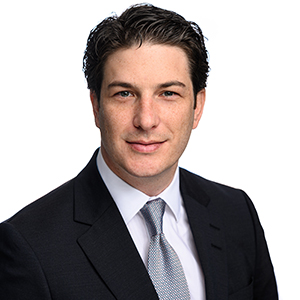In This Section

Noah Schein
Partner, Norton Rose Fulbright Canada LLP
Noah Schein’s practice covers all aspects of corporate finance, with an emphasis on cross-border and multi-jurisdictional structured financings. Noah’s experience includes asset-based loans, acquisition financings, first lien/second lien financings, capital call facilities and specialty finance transactions.
Noah acts for Canadian and international financial institutions, non-bank lenders and borrowers in connection with finance transactions including bilateral and syndicated financings, securitizations, debt capital markets transactions and insolvency and restructuring matters. In addition, Noah acts as a trusted Canadian advisor to U.S. and international law firms.
Noah obtained his Bachelor of Business Administration from the Schulich School of Business at York University in 2006 and his J.D. from the University of Windsor Faculty of law in 2012 where he was the gold medalist. Noah is also a CPA, a designation he obtained while working in the mergers and acquisitions tax department of an international accounting firm.
How do you define a good leader?
The leaders who I enjoy working with the most are those who push me to try new things, while providing the support and guidance I need to be successful. It is through these stretch experiences that I have been able to grow the most. In the finance industry, at least on the legal side, a good leader needs to be able to lead by example. This applies to technical skills, but also to communication, problem solving and dedication.
What advice do you normally give to the junior talent you mentor?
Be curious and ask questions! At the beginning of a career, one is not expected to know everything; the expectation is to learn and grow. There is something truly satisfying about answering a colleague’s questions one day, and then watching that person navigate through the same issue during the next transaction or client conversation with confidence. I am personally thankful to some amazing leadership and mentorship I have received from the partners at my firm and it is a privilege to pay it forward.
What are some negotiation tactics you’ve learned over the years?
I have come to learn that there is no one-size-fits-all approach to negotiation. A critical skill is reading a situation to determine the best negotiation tactic to use in that particular case. By knowing your audience, understanding their motivations, and even empathizing with them, you can best achieve a mutually acceptable result. Sometimes this means being kind, inquisitive or even self-deprecating, while other times it may require a more assertive approach. It is also important to be flexible and responsive in order to achieve the desired outcome.
With many working remotely or hybrid-style the past few years, what are some work-life balance strategies you’ve stuck with?
My youngest child was born during the pandemic. Working from home has given me more time with him during his early years than would have been possible if I was working from an office full time. While I enjoy the dynamism of the office to connect with clients and my team face-to-face, working partially from home allows me to steal extra moments with my family. By continuing to do so, I am hopeful junior practitioners will see it as an example that an enriching family life can co-exist with a busy private practice. Hybrid-style work allows for work/life “integration” in a way that has never been possible before.
What advice would you give on how to self-advocate?
I recognize that self-advocacy can be difficult and awkward for a variety of reasons - cultural norms, social modesty or otherwise. It is, nevertheless, important as accomplishments do not speak for themselves and, in many cases, are not externally evident. Self-advocacy is a skill that, like many others, can be developed over time by practicing consistently (and in appropriate circumstances!). Finding a safe and comfortable situation is a good place to start (such as in internal performance review) and referring to quantifiable facts and figures provides an objective benchmark. Once confident establishing your value, it becomes easier to ask for what you want and believe you deserve it.
Professional Development Courses
- Live online classes for ABL and Factoring professionals
- On Demand classes in Appraisals, Factoring, Legal, Workout & Bankruptcy
